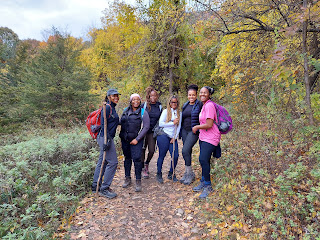8 Tips For Staying Safe & Preventing Heat-Related Illnesses During Summer Heatwaves
As the sun shines brightly and scorches more than half of the country with record-breaking high temps, we may be enticed to explore the great outdoors, but it's super crucial to prioritize our safety and well-being when doing so. Whether you're hiking, camping, or simply enjoying nature, heat-related illnesses can be dangerous and even life-threatening if not managed properly, so understanding how to stay safe and prevent heat-related illnesses is essential. Continue reading to explore effective strategies to help you stay cool and hydrated and protect yourself from the heat while embracing the beauty of the natural world.
TIP #1. Plan Ahead and Stay Informed: Before venturing into nature, it's crucial to research the weather conditions for your chosen destination. Check local weather forecasts, including the temperature, humidity, and heat index. This information will help you make informed decisions about your outdoor activities and allow you to prepare accordingly.
TIP #2. Dress Appropriately: Choosing the right clothing can significantly impact your comfort and safety in hot weather. Opt for lightweight, loose-fitting, and light-colored clothing that allows your skin to breathe and facilitates air circulation. Wearing a wide-brimmed hat and sunglasses can also provide additional protection from the sun.
TIP #3. Stay Hydrated: Proper hydration is vital in preventing heat-related illnesses. Drink plenty of fluids before, during, and after your outdoor adventures. Water is the best choice, but you can also consider electrolyte-rich drinks to replenish essential minerals lost through sweating. Remember to drink regularly, even if you don't feel thirsty, as dehydration can occur quickly in hot weather. [see related article: How Much Water Should You Really Drink When Hiking?]
TIP #4. Time Your Activities: Timing your activities can make a significant difference in preventing heat-related illnesses. Whenever possible, plan your outdoor excursions during the cooler parts of the day, such as early morning or late evening. Avoid peak heat hours when the sun is at its strongest, typically between 10 am and 4 pm. If you must be outdoors during these hours, take frequent breaks in shaded areas to rest and cool down.
TIP #5. Seek Shade and Use Sun Protection: When the sun's rays are intense, finding shade becomes crucial. Take advantage of trees, canopies, or umbrellas to shield yourself from direct sunlight. Additionally, apply a broad-spectrum sunscreen with a high SPF to protect your skin from harmful UV rays. Reapply sunscreen regularly, especially if you're sweating or spending extended periods outside.
TIP #6. Pace Yourself and Take Breaks: Listen to your body and avoid overexertion, particularly in extreme heat. Pace yourself and take regular breaks to rest and cool down. Use these opportunities to seek shade, rehydrate, and allow your body to recover from the heat. Pushing yourself too hard can increase the risk of heat exhaustion or heatstroke.
TIP #7. Know the Signs of Heat-Related Illnesses: Educate yourself about the signs and symptoms of heat-related illnesses. Heat exhaustion is characterized by heavy sweating, weakness, nausea, dizziness, headache, and muscle cramps. If you or someone in your group experiences these symptoms, immediately move to a cooler location, rest, and drink fluids. Heatstroke, a more severe condition, includes symptoms like a high body temperature, confusion, rapid pulse, and loss of consciousness. Heatstroke is a medical emergency, and you should seek immediate medical assistance if you suspect it.
TIP #8. Buddy System: Never embark on outdoor activities alone, especially in hot weather. Having a hiking or adventure buddy can provide support and assistance and help monitor each other's well-being. Look out for signs of heat-related illnesses in your companions, and encourage them to do the same for you.
While the allure of nature can be irresistible, it's essential to prioritize your safety and well-being, especially when facing high temperatures. By planning ahead, dressing appropriately, staying hydrated, and understanding the signs of heat-related illnesses, you can enjoy your outdoor adventures while minimizing the risk of heat-related health issues. Remember, prevention is key, so follow these tips and stay cool, hydrated, and safe while reveling in the wonders of nature.

.png)


Comments
Post a Comment